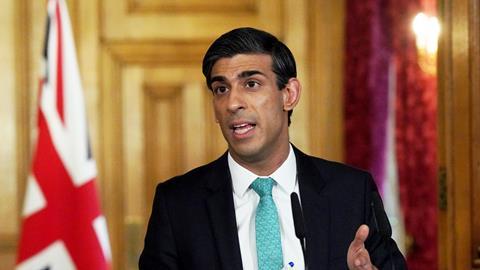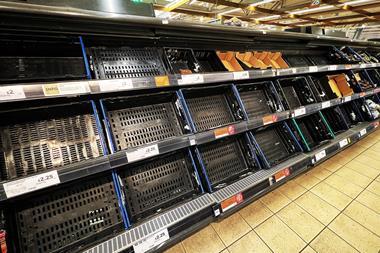Storm clouds would appear to be gathering over the UK’s supermarkets, as retail bosses feel ever more heat on inflation.
Yesterday there were calls for the competition watchdog, the CMA, to launch an investigation into so-called supermarket “profiteering”.
As one expert sums up, it will take more than a call from the leader of the Lib Dems to get the CMA involved. But given the competition watchdog’s punchy record of late, including its ongoing probe into the tactics of the big fuel companies, an urgent investigation into food prices is by no means out of the question.
Today, however, The Grocer reveals what some hope could prove a more seismic, less confrontational intervention. It has emerged prime minister Rishi Sunak is summoning food sector bosses to talks in Westminster in the middle of this month.
The agenda is so hush-hush even top industry sources profess to be unsure quite what will be on the table. But the fact it has been brought forward from its expected timeframe, in the second half of the year, suggests it will be impossible to avoid the inflation issue and the relationship between supermarkets and farmers.
The NFU, which has been heavily pushing for what’s been dubbed the ‘Sunak Summit’, will no doubt be fighting hard for some sort of landmark agreement. One that would signal a new commitment to UK producers, who claim they have been on the wrong end of unfairness in the food chain for too long.
The union is calling for measures including targets on home-grown produce and a big government-backed ‘eat British’ campaign.
Their appeal comes as new data today shows short and mid-term farmer confidence at its lowest level since the pandemic began.
But the most radical demands for a shift in the balance of industry power may be left unanswered. That would take the sort of market intervention the government has shown no appetite for in the past.
Plus, one source suggests the government is keen to avoid going down the “anti-retailer” path. As much as farmers are pining for a reset of the supply chain, Sunak and his advisers may hope less dramatic promises on trade and manufacturing pass muster, they say.
The trouble with summits is they tend to create mounting expectations. There is then very little time to see hopes fall right back down to earth.




















No comments yet